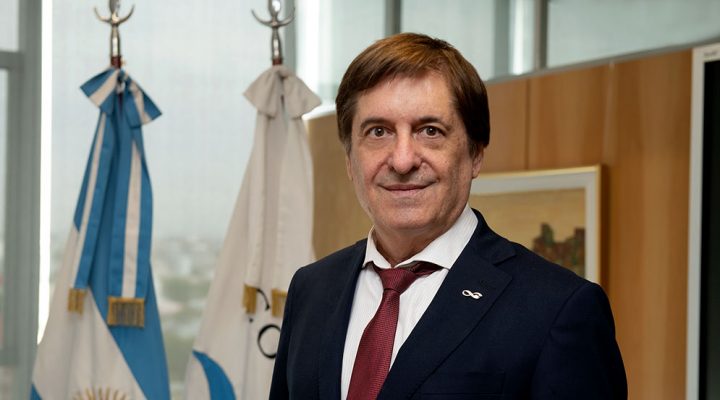INSTITUTIONAL NEWS
Daniel Salamone was appointed president of CONICET
He is a Principal Researcher of the Council, a veterinarian from the UBA, with postgraduate studies in Japan, Canada and the United States, and a specialist in assisted reproduction, transgenesis and gene editing in animals.
Dr. Daniel Felipe Salamone was appointed as president of the Board of Directors of the National Scientific and Technical Research Council (CONICET). The news was published in the Official Gazette, through Decree Nº 102/2023.
Daniel Salamone is a Principal Researcher of CONICET, a veterinary doctor graduated from the Faculty of Veterinary Sciences of the University of Buenos Aires (UBA), a master’s degree in this discipline from the University of Saskatchewan, Canada, and has a PhD in Biotechnology and Biomedicine from the University of Massachusetts, United States. He also has postgraduate studies in Japan and specialized in assisted reproduction, cloning, transgenesis and gene editing in animals.
He is director of the Animal Biotechnology Laboratory of the Faculty of Agronomy of the UBA and has been a professor of numerous Biotechnology courses and seminars at different national and international universities. Besides, he has more than 80 publications in refereed scientific journals and was director of more than 20 doctoral theses.
As regards projects, Salamone has led various scientific and technological development initiatives in the field of animal reproduction biotechnology. Numerous ventures have emerged from his laboratory that gave rise to startups.
He was a member of the team that produced the first in vitro fertilization calf in Argentina, and both the first cloned and transgenic bovine and the first cloned horse in South America. Furthermore, the scientist developed new techniques to clone gametes and embryos. He recently produced, with the company NewOrgans, five genetically edited pigs with the potential to be used for organ donation.
Salamone is a member of the National Academy of Agronomy and Veterinary Medicine and the International Embryo Technology Society (IETS), of which he was president. He has organized various conferences on biotechnology of animal reproduction in France, Thailand and the United States, among other countries. Likewise, he carried out numerous assisted reproduction works for the conservation of wild species (tiger, cheetah, zebra, jaguar, wild cat) together with the Ecopark and different institutions.
He received the Pérez Companc award, the Konex Biotechnology award and on three occasions the INNOVAR award for applied research. In addition, he won the Gold Medal from the World Intellectual Property Organization, in Geneva, Switzerland.
